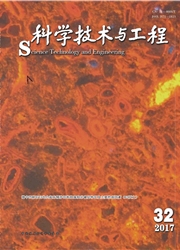

 中文摘要:
中文摘要:
针对高场非对称波形离子迁移谱仪(FAIMS)分离电压温度漂移造成的其物性表征的不确定性问题,提出了一种采用径向基函数(RBF)神经网络对分离电压进行温度补偿的方法。为了提高算法的实时性,加快函数逼近速度,采用指数下降惯性权重(EDIW)动量因子策略对RBF神经网络参数进行了优化。在20-120℃的温度范围内,对该算法及线性下降惯性权重(LDIW)动量因子策略优化的RBF神经网络和传统RBF神经网络等3种补偿算法进行对比。结果表明,指数下降惯性权重动量因子策略优化的RBF神经网络模型具有更少的迭代次数和更短的运算耗时,使分离电压很好地保证了对特定物质离子表征的唯一性,同时验证了该模型还具有较强的泛化能力。对分离电压采用温度补偿的方法也为实现迁移管无恒温控制提供了理论依据。
 英文摘要:
英文摘要:
As for the problem of the temperature drifting of disperse voltage led to the physical properties characterization with uncertainty in the high-field asymmetric waveform ion mobility spectrometry( FAIMS),a temperature compensation method of the disperse voltage detection based on radial basis function( RBF) neural network was proposed. In order to reduce the time-consumption,speed up the function approximation,a strategy with exponential decreasing inertia weigh( EDIW) momentum factor was applied to optimize the parameters of RBF neural network. Three kinds of compensation algorithm such as exponential decreasing inertia weight RBF neural network,linearly decreasing inertia weigh( LDIW) RBF neural network,traditional RBF neural network and so on were done a comparison test at 20 ℃ to 120 ℃. The results show that exponential decreasing inertia weight RBF neural network temperature compensation model,with higher generalization ability has less iteration number and shorter operation time,and makes the separation voltage well guarantee the uniqueness of certain material ion characterization.This method also provides a theoretical basis to design no constant temperature control system in the drift tube.
 同期刊论文项目
同期刊论文项目
 同项目期刊论文
同项目期刊论文
 Design of portable instrument for the concentration of potassium ions in human vitreous humor to est
Design of portable instrument for the concentration of potassium ions in human vitreous humor to est 期刊信息
期刊信息
